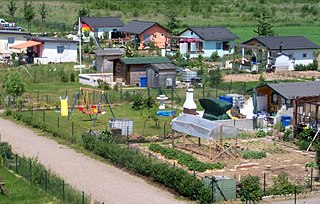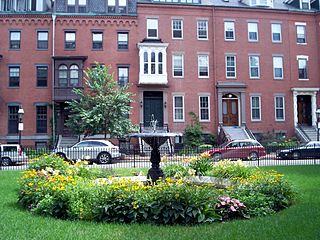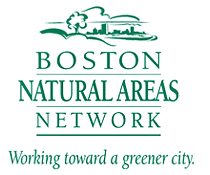History
The Land Trust was established in 1991 with the intent to incorporate and protect eight established community gardens. The existing gardens were owned by a variety of institutions, none of them with long term legal protection. The legal incorporation as a non-profit organization with an elected board composed of neighbors created an entity that was able to partner with The Trust for Public Land to purchase the range of properties from a variety of owners, and set in place a process to use and care for the gardens in perpetuity. Many of the original eight gardens were primarily food producing, helping to augment the budgets of low and moderate-income urban families. Land Trust gardens continue to be places of food production, as well as gardeners growing ornamental plants.
SELROSLTheld and operated sixteen community gardens, gardened by approximately 600 gardeners, and accessible to their adjacent neighborhoods. Individual gardens have received awards from the Massachusetts Horticultural Society, the City of Boston, and Horticulture magazine. Three SELROSLT community gardens have been the subject of the nationally distributed WGBH-produced program The Victory Garden.
In July 2012, after a year of joint planning, SELROSLT voted to merge into Boston Natural Areas Network (BNAN). The time had come for SELROSLT to move from an all volunteer organization to an organization that provided full-time staff and greater resources. The merger gives the community gardens access the resources of BNAN, and their affiliate The Trustees of Reservations. The deeds for all SELROSLT community spaces were all transferred to BNAN, ensuring the protection of community gardens and open spaces in perpetuity.

An allotment, a type of community garden, is a plot of land made available for individual, non-commercial gardening for growing food plants, so forming a kitchen garden away from the residence of the user. Such plots are formed by subdividing a piece of land into a few or up to several hundred parcels that are assigned to individuals or families. Such parcels are cultivated individually, contrary to other community garden types where the entire area is tended collectively by a group of people. In countries that do not use the term "allotment (garden)", a "community garden" may refer to individual small garden plots as well as to a single, large piece of land gardened collectively by a group of people. The term "victory garden" is also still sometimes used, especially when a community garden dates back to the First or Second World War.

Roxbury is a neighborhood within the City of Boston, Massachusetts, United States.

Urban agriculture refers to various practices of cultivating, processing, and distributing food in urban areas. The term also applies to the area activities of animal husbandry, aquaculture, beekeeping, and horticulture in an urban context. Urban agriculture is distinguished from peri-urban agriculture, which takes place in rural areas at the edge of suburbs.

The South End is a neighborhood in Boston, Massachusetts, United States which is bordered by Back Bay, Chinatown, and Roxbury. It is distinguished from other neighborhoods by its Victorian-style houses and the parks in and around the area. The South End is the largest intact Victorian row-house district in the country, covering over 300 acres (120 ha). It has eleven residential parks. In 1973, the South End was listed on the National Register of Historic Places. Much of the neighborhood was originally marshlands in Boston's South Bay. After it was filled in, construction began in 1849.

Guerrilla gardening is the act of gardening – raising food, plants, or flowers – on land that the gardeners do not have the legal rights to cultivate, such as abandoned sites, areas that are not being cared for, or private property. It encompasses a diverse range of people and motivations, ranging from gardeners who spill over their legal boundaries to gardeners with a political purpose, who seek to provoke change by using guerrilla gardening as a form of protest or direct action.

A community garden is a piece of land gardened or cultivated by a group of people individually or collectively. Normally in community gardens, the land is divided into individual plots. Each individual gardener is responsible for their own plot and the yielding or the production of which belongs to the individual. In collective gardens the piece of land is not divided. A group of people cultivate it together and the harvest belongs to all participants. Around the world, community gardens exist in various forms, it can be located in the proximity of neighborhoods or on balconies and rooftops. Its size can vary greatly from one to another.
Uran gardening is the practice of growing vegetables, fruit and plants in urban areas, such as schools, backyards or apartment balconies.

The traditional kitchen garden, vegetable garden, also known as a potager or in Scotland a kailyaird, is a space separate from the rest of the residential garden – the ornamental plants and lawn areas. It is used for growing edible plants and often some medicinal plants, especially historically. The plants are grown for domestic use; though some seasonal surpluses are given away or sold, a commercial operation growing a variety of vegetables is more commonly termed a market garden. The kitchen garden is different not only in its history, but also its functional design. It differs from an allotment in that a kitchen garden is on private land attached or very close to the dwelling. It is regarded as essential that the kitchen garden could be quickly accessed by the cook.

The Boston Natural Areas Network (BNAN) was a non-profit organization based in Boston, in the U.S. state of Massachusetts founded in 1977, which worked to identify and protect significant natural areas described as urban wilds and greenways in the metropolitan area. After 7 years of being an affiliate of The Trustees of Reservations, in December 2014 BNAN officially merged with the Trustees, and became part of the Trustees Boston Region.

Urban horticulture is the science and study of the growing plants in an urban environment. It focuses on the functional use of horticulture so as to maintain and improve the surrounding urban area. Urban horticulture has seen an increase in attention with the global trend of urbanization and works to study the harvest, aesthetic, architectural, recreational and psychological purposes and effects of plants in urban environments.
Denver Urban Gardens (DUG) is a non-profit organization that supports community gardens in Denver, Colorado in the United States.

The West Side Community Garden is a privately owned 501(c)(3) garden in Manhattan, New York City, United States. It is located between West 89th Street and West 90th Street in the middle of the block between Amsterdam Avenue and Columbus Avenue.
Community Greens, sometimes referred to as backyard commons, urban commons, or pocket neighborhoods, are shared open green spaces on the inside of city blocks, created either when residents merge backyard space or reclaim underutilized urban land such as vacant lots and alleyways. These shared spaces are communally used and managed only by the residents whose homes abut them. They are not a public park, a private backyard, or a community garden; however, they can function as all three.

The Village Roots Garden is a community garden located at 1115 E. Otjen Street in the Bay View neighborhood of Milwaukee, Wisconsin.

The Bay View Garden And Yard Society is a nonprofit 501(c)(7) organization based in the Bay View neighborhood of Milwaukee, Wisconsin, United States.
French intensive gardening also known as raised bed, wide bed, or French market gardening is a method of gardening in which plants are grown within a smaller space and with higher yields than other traditional gardening methods. The main principles for success are often listed as soil improvement, raised beds, close spacing, companion planting, succession planting and crop rotation. Originating in France, the practice is very popular among urban gardeners and small for profit farming operations.

Community gardens in the United States benefit both gardeners and society at large. Community gardens provide fresh produce to gardeners and their friends and neighbors. They provide a place of connection to nature and to other people. In a wider sense, community gardens provide green space, a habitat for insects and animals, sites for gardening education, and beautification of the local area. Community gardens provide access to land to those who otherwise could not have a garden, such as apartment-dwellers, the elderly, and the homeless. Many gardens resemble European allotment gardens, with plots or boxes where individuals and families can grow vegetables and flowers, including a number which began as victory gardens during World War II. Other gardens are worked as community farms with no individual plots at all, similar to urban farms.

The Toronto Botanical Garden (TBG) is located at 777 Lawrence Avenue East at Leslie Street, in Toronto, Ontario, Canada. Termed "The little garden with big ideas", the TBG is nearly four acres and features 17 themed "city-sized gardens". Located in the north-east corner of Edwards Gardens, the TBG is a non-profit horticultural and educational organization with a mission to connect people, plants and the natural world through education, inspiration and leadership.
Bremen Street Park is an 18-acre urban park, located in East Boston, Boston, Massachusetts. The park runs parallel to both Bremen Street and the Mass Pike/Route 1A and acts as a green space buffer between Logan International Airport and the residential neighborhoods of East Boston. The park is owned, operated and patrolled by the Massachusetts Port Authority (MassPort). It is also part of the East Boston Greenway, a linear park and shared use path.
Community gardens in New York City are urban green spaces created and cared for by city residents who steward the often underutilized land. There are over 550 community gardens on city property, over 745 school gardens, over 100 gardens in land trusts, and over 700 gardens at public housing developments throughout New York City. The community garden movement in NYC began in the Lower East Side during the disrepair of the 1960s on vacant, unused land. These first gardens were tended without governmental permission or assistance.















